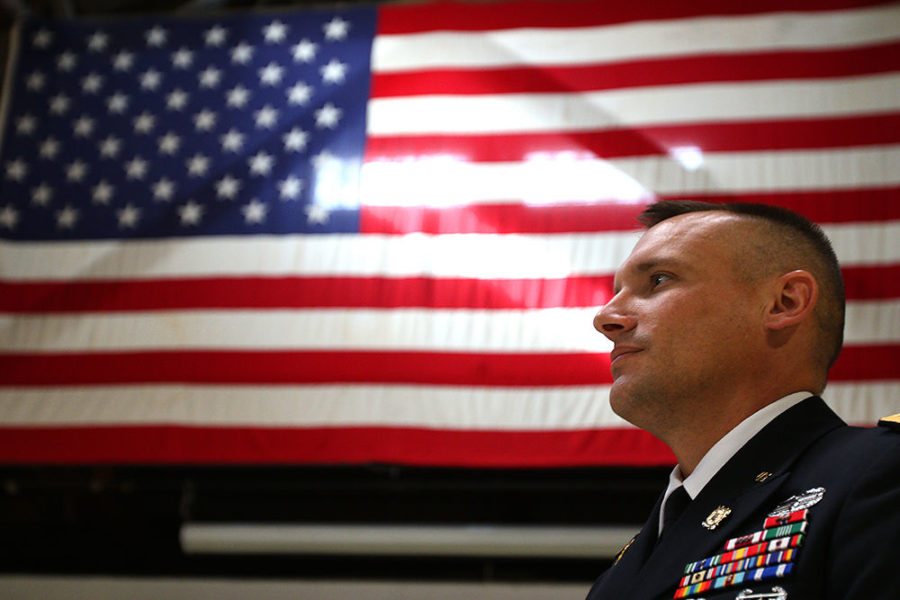Teaching tomorrow’s military
November 14, 2015
By Cheyene Miller
cmiller@kykernel.com
After 18 years of active service in the U.S. Army, Lt. Colonel Thomas Krupp wanted to give back to the program that helped set the stage for his military career.
“I’m a product of ROTC as well,” said Krupp, a professor of military science who is in his first semester instructing at the UK Army ROTC.
Originally from Reno, Nev., Krupp came from a military family. His father was a Marine and his grandfather and brother served in the Army. This legacy influenced Krupp to enlist in the military when he was 21.
“It was just something that I always knew that I wanted to do,” Krupp said.
After graduating from the Army ROTC program at the University of Nevada, Reno, Krupp entered the Army as an officer. He started out as a platoon leader, and within his first three years of service was promoted to company executive officer and battalion maintenance officer.
Krupp said when UK cadets graduate they will be enlisted in the Army as a 2nd lieutenant and will likely begin as a platoon leader as he did.
During his service Krupp earned numerous awards and service medals, including receiving the Bronze Star three times.
Krupp, who has trained soldiers for combat, said training college students to become military officers is “far more complex.”
Krupp said when teaching, he uses a combination of teaching styles, being dynamic and humorous at times and being matter-of-fact when needed.
“When you talk about personalities in the classroom, you’ve got to keep people engaged. Cadets are like any other student,” Krupp said.
Unlike majors in many colleges, Krupp said ROTC cadets are guaranteed to have a job as soon as they graduate. “I think I’ve got quite a bit more leverage to get people excited and involved with the training … but that doesn’t mean that you don’t try to use all the methods of instruction.”
According to Krupp, there are currently 111 contracted cadets in ROTC with about 50 looking to join. He said the ROTC program nationwide has trained more than 600,000 officers since 1916, all of which have potential to achieve the highest ranks in the military.
“I see that in them and it’s very rewarding,” said Krupp, who called his cadets “ambitious and intelligent,” and said “any one of them has the potential to be the next Chief of Staff of the (U.S.) Army.”
Veteran’s Day was Wednesday, and Krupp said he views the holiday as a period of reflection on those who’ve served: past, present and future.
“I reflect on those who’ve dared, those who’ve already taken an oath and served their country,” Krupp said. “But being in this environment here, surrounded with all the youth, you can’t help but look at the future and have a positive outlook.”
































































































































































